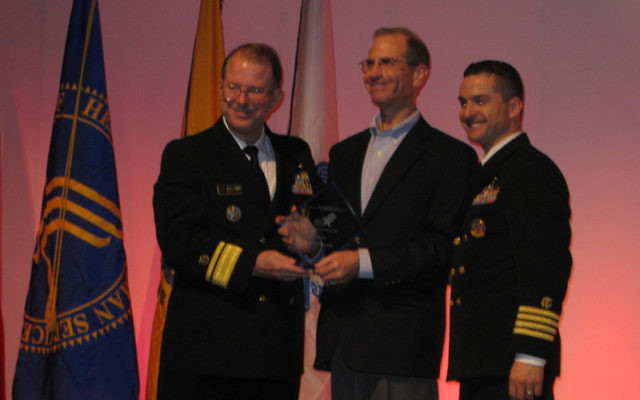Medical Reservists Prepare for Disaster
By Kevin Madigan
kmadigan@atljewishtimes.com
Sherwin Levinson has made it his life’s mission to educate as many people as possible on what to do in the event of an emergency.
The Lawrenceville man runs the Medical Reserve Corps-Georgia East Metro (MRC GEM), an organization that trains volunteers to augment official efforts during crises in Gwinnett, Newton and Rockdale counties.
Launched in the wake of the Sept. 11 attacks, MRC went into decline until Levinson was brought in as executive director eight years ago.
“It was moribund, and I was recruited to bring it back to life,” he said. Levinson, who studied physics at MIT, is from Chicago and has lived in the Atlanta area since 1979.
Now his nonprofit organization is thriving and has close to 400 members. They range in age from 18 to retirement and represent all demographics; some have medical or public safety backgrounds.
“We just had a weekend retreat, and I had about 55 members there, which was just great,” Levinson said. “Saturday we did an exercise on radiation response for the CDC, and Sunday morning we looked at where we fit in the national response picture.”
Members can take courses in first aid and CPR, epidemiology and triage, infection control, and building a disaster kit, among others.
“In an actual emergency we’ll need lots of skills and some people to just help calm the public — show them where to go, help them with paperwork, and take care of all the practicalities, all the way down to taking out the trash,” Levinson said.
Most of MRC’s focus is on Gwinnett and its population of 850,000. “I believe Newton and Rockdale together only have about 200,000,” he said. “Obviously we have a greater pool to draw from and a greater need in Gwinnett. Also we have a greater diversity there. We have over 100 languages spoken in our schools, and among our members we have 20 languages that they can act as translators for. In and of itself, that would be a great resource in an emergency.”
Levinson said all disasters start out local, then move on to county, state and federal levels. “What I try to get across is if you learn to take care of yourself in an emergency, we’ll be happy. If you learn to take care of your family as well, that’s even better. Your neighborhood, that’s great, and if you’re willing to come out and help deal with the whole community, that’s golden, that’s perfect. If we train one more person to take care of themselves, that’s one less person that needs attention form the authorities. We’re helping from both ends that way.”
You can get information on volunteering or becoming a member at mrcgem.com./join_us.html.
Despite its resurgence, MRC still faces challenges. “Keeping people interested and engaged is the first one. Second is recruiting, and third is financial. Right now we’re not in bad shape. We operate on a shoestring,” said Levinson, adding, “I know how to make ends meet.”
He said world governments generally are failing to address terrorism.
“There’s no question that ISIS has taken possession of a fair amount of radioactive material. I think the general attitude is that places like Syria and Iraq are deserts with nomads, and they don’t realize they have modern cities with modern hospitals, and they have cancer treatment facilities, which use highly radioactive resources,” Levinson said. “They could gain access to those hospitals and could make dirty bombs that could disperse radioactive material. And I think they have the desire to do so. The challenge is keeping it out of the U.S. and, if it does happen, responding quickly.”




comments